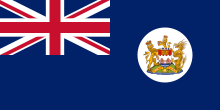Portal:Hong Kong
Appearance
The Hong Kong Portal
Hong Kong is a special administrative region of China. With 7.4 million residents of various nationalities in a 1,104-square-kilometre (426 sq mi) territory, Hong Kong is the fourth most densely populated region in the world. Originally a sparsely populated area of farming and fishing villages, the territory is now one of the world's most significant financial centres and commercial ports. Hong Kong is the world's third-ranked global financial centre (behind New York City and London), ninth-largest exporter, and eighth-largest importer. Its currency, the Hong Kong dollar, is the ninth most traded currency in the world. Home to the second-highest number of billionaires of any city in the world, Hong Kong has the largest number of ultra high-net-worth individuals. Although the city has one of the highest per capita incomes in the world, severe income inequality exists among the population. Despite being the city with the most skyscrapers in the world, housing in Hong Kong is consistently in high demand. Hong Kong is a highly developed territory and has a Human Development Index (HDI) of 0.956, ranking fourth in the world and currently the only place in Asia to be in the top 5. The city has the highest life expectancy in the world, and a public transport usage exceeding 90 per cent. (Full article...) Selected article - show another From 1841 to 1997, except for a brief period of Japanese occupation during World War II between 1941 and 1945, Hong Kong was a British crown colony and, from 1981 until its handover, a dependent territory of the United Kingdom. The colonial period began with the British occupation of Hong Kong Island under the Convention of Chuenpi in 1841 of the Victorian era and ended with the handover of Hong Kong in July 1997. In accordance with Art. III of the Treaty of Nanking of 1842, signed in the aftermath of the First Opium War, the island of Hong Kong was ceded in perpetuity to Great Britain. It was established as a Crown colony in 1843. In 1860, the British expanded the colony with the addition of the Kowloon Peninsula and was further extended in 1898 when the British obtained a 99-year lease of the New Territories. Although the Qing had to cede Hong Kong Island and Kowloon in perpetuity as per the treaty, the leased New Territories comprised 86.2% of the colony and more than half of the entire colony's population. With the lease nearing its end during the late 20th century, Britain did not see any viable way to administer the colony by dividing it, whilst the People's Republic of China would not consider extending the lease or allow continued British administration thereafter. (Full article...) Selected biography - show anotherGeorge Lam Tsz Cheung (born 12 October 1947), also known professionally by his surname Lam, is a Hong Kong-based veteran Cantopop singer, singer-songwriter, music producer and actor, with a career that spanning more than four decades. Self-producing, Lam creates most of his own albums and songs, as well as being especially involved with creative direction of his work outside its musical aspects. Lam has a wide vocal range and has interpreted and performed in many different genres of music. His works are best known for pioneering a variety of genres in the Hong Kong music scene, such as creating the known first Cantorap, "Ah Lam's Diary", and the medley "10 Minutes 12 Inches" from multiple Cantopop hits, with the latter composition's interwoven intricacies creating a derivative for Lam's eponymous concert Lamusical with his own hits. (Full article...) Selected picture for FebruaryStatue of Queen Victoria (foreground) and the skyline (background) visible from Victoria Park
General images - load new batchThe following are images from various Hong Kong-related articles on Wikipedia.
Did you know (auto-generated) - load new batch
Related portalsEast Asia Other Countries Related projectsMore did you know...
TopicsNew articlesTasks
Associated WikimediaThe following Wikimedia Foundation sister projects provide more on this subject:
Discover Wikipedia using portals | |||||||